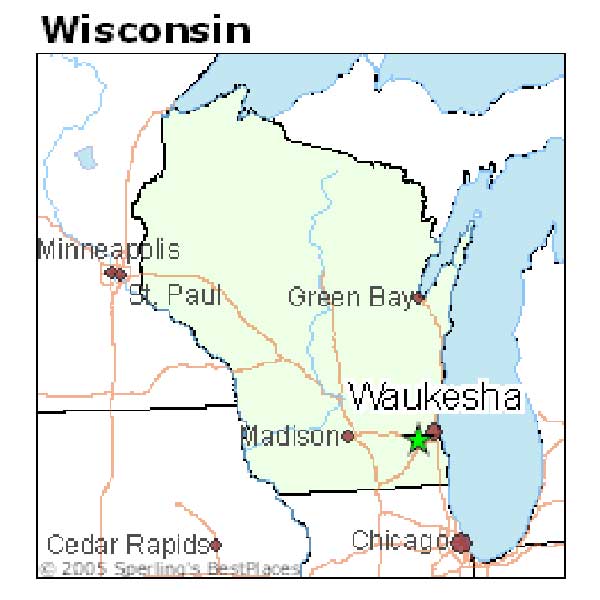LAKE HURON—The people of Manitoulin Island and the rest of Ontario are being encouraged by the province to comment on the City of Waukesha, Wisconsin’s Water Diversion Application with time ticking away on this crucial, possibly precedent-setting, petition for the diversion of Great Lakes water.
Under the Great Lakes Compact, signed by the eight Great Lakes states, and its accompanying Agreement (which also includes the provinces of Ontario and Quebec), diversions to areas located outside of the basin are banned with limited exceptions.
“The City of Waukesha, Wisconsin, is a community in a county that straddles the Basin divide and has applied for such an exception,” the city’s website states. “The city proposes to divert up to 10.1 million gallons per day of basin water, based on a projected average daily demand for its planned water service area at full build-out (approximately by 2050). The State of Wisconsin has prepared a technical review evaluating the city’s application for compliance with the Compact and Agreement criteria for an exception to the ban on diversions, and Wisconsin has forwarded the application to the Great Lakes and St. Lawrence Governors’ and Premiers’ Regional Body and the Great Lakes-St. Lawrence River Basin Water Resources Council (Governors’ Compact Council).”
Ontario and Quebec do not have a seat at the Governors’ Compact Council, but the premiers do have an advisory role. Premier Kathleen Wynne has asked the Ministry of Natural Resources and Forestry (MNRF) to be her designate during this process.
“Waukesha is the first proposal to undergo regional review under the Agreement and Ontario recognizes the significance and critical importance of the review process,” MNRF communications officer Elizabeth Dorff told The Expositor.
“In this role, MNRF is expected to actively participate in the regional review process including consideration of whether the proposal meets agreement standards, it will review comments, attend a public hearing in Wisconsin and participate in the development of the regional body’s consensus-based public Declaration of Finding on whether the proposal meets Agreement standards,” Ms. Dorff continued.
“Before an exception to the ban on diversions under the Agreement may be approved, it must meet stringent environmental standards and criteria, such as demonstrating that there are no feasible alternatives to the diversion, no significant adverse impacts, that conservation measures have been implemented and water will be returned back to the basin,” she added.
According to the Compact Implementation Coalition (CIC), the City of Waukesha does not meet the Great Lakes Compact requirements because it includes outlaying areas “to justify the inflated amount of water it requests in its diversion application”; the city has a local water supply alternative; the city is outside of the Great Lakes basin; the city has no central water supply or distribution as most homes are on well and septic systems with no means of measuring use; the plan to return the treated Great Lakes water is via the Root River, which is high in phosphorus with the CIC claiming this will only add to the river’s, and therefore the Great Lakes’, phosphorous levels; and many more concerns.
“This is quite concerning,” Algoma-Manitoulin MP Michael Mantha said in an interview with The Expositor, noting the potential negative impact this could have on ecosystems and commercial businesses which rely on the Great Lakes. “If you open it up like this, this would be the beginning of the end.”
Mr. Mantha said he hoped Ontario will have a loud, strong voice at the table and pointed to Bill 66, the Great Lakes Protection Act, 2015. “This would defeat the purpose of that bill,” he said.
The International Joint Commission is also keeping a close watch on the proceedings.
To strengthen the region’s defenses against large scale diversion even further, the IJC is recommending that states and provinces “consider a binational public trust framework as a backstop to the 2008 Compact and Agreement; and that states, provinces and federal governments develop methods for improving the accuracy of Great Lakes water use and consumptive use estimates,” according to the IJC website.
“Moving forward, it is important to remember that there really is no ‘surplus’ water in the Great Lakes Basin,” the IJC report states. “From an ecosystem perspective, it is all in use, even in periods of high supply. There continues to be large voids between our knowledge regarding levels and flows, and the impact they have on the ecosystem of the basin.”
“Due to prevailing uncertainties, such as those posed by climate change and the sheer threat of the unexpected, the precautionary principle needs to be continually applied by basin jurisdictions to ensure, to the extent possible, adequate supplies for all socio-economic and ecosystem uses for the long term.”
MNRF encourages stakeholders, the public, First Nations and Métis communities to review the proposal and submit comments through one of the methods identified on the Waukesha Diversion website (www.waukeshadiversion.org) prior to March 14 so that any comments received may be considered by all 10 parties to the Agreement in their analysis of the proposal.




